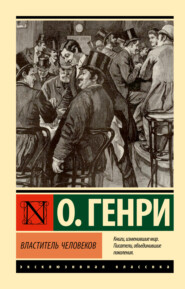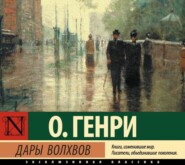По всем вопросам обращайтесь на: info@litportal.ru
(©) 2003-2025.
✖
Options
Настройки чтения
Размер шрифта
Высота строк
Поля
"That comfortable quarters are found for you," said Blandford.
With creditable ingenuity, old Jake set up a cackling, high-pitched, protracted laugh. He beat his knee, picked up his hat and bent the brim in an apparent paroxysm of humorous appreciation. The seizure afforded him a mask behind which he could roll his eyes impartially between, above, and beyond his two tormentors.
"I sees what!" he chuckled, after a while. "You gen'lemen is tryin' to have fun with the po' old nigger. But you can't fool old Jake. I knowed you, Marse Blandford, the minute I sot eyes on you. You was a po' skimpy little boy no mo' than about fo'teen when you lef' home to come No'th; but I knowed you the minute I sot eyes on you. You is the mawtal image of old marster. The other gen'leman resembles you mightily, suh; but you can't fool old Jake on a member of the old Vi'ginia family. No suh."
At exactly the same time both Carterets smiled and extended a hand for the watch.
Uncle Jake's wrinkled, black face lost the expression of amusement to which he had vainly twisted it. He knew that he was being teased, and that it made little real difference, as far as its safety went, into which of those outstretched hands he placed the family treasure. But it seemed to him that not only his own pride and loyalty but much of the Virginia Carterets' was at stake. He had heard down South during the war about that other branch of the family that lived in the North and fought on "the yuther side," and it had always grieved him. He had followed his "old marster's" fortunes from stately luxury through war to almost poverty. And now, with the last relic and reminder of him, blessed by "old missus," and intrusted implicitly to his care, he had come ten thousand miles (as it seemed) to deliver it into the hands of the one who was to wear it and wind it and cherish it and listen to it tick off the unsullied hours that marked the lives of the Carterets – of Virginia.
His experience and conception of the Yankees had been an impression of tyrants – "low-down, common trash" – in blue, laying waste with fire and sword. He had seen the smoke of many burning homesteads almost as grand as Carteret Hall ascending to the drowsy Southern skies. And now he was face to face with one of them – and he could not distinguish him from his "young marster" whom he had come to find and bestow upon him the emblem of his kingship – even as the arm "clothed in white samite, mystic, wonderful" laid Excalibur in the right hand of Arthur. He saw before him two young men, easy, kind, courteous, welcoming, either of whom might have been the one he sought. Troubled, bewildered, sorely grieved at his weakness of judgment, old Jake abandoned his loyal subterfuges. His right hand sweated against the buckskin cover of the watch. He was deeply humiliated and chastened. Seriously, now, his prominent, yellow-white eyes closely scanned the two young men. At the end of his scrutiny he was conscious of but one difference between them. One wore a narrow black tie with a white pearl stickpin. The other's "four-in-hand" was a narrow blue one pinned with a black pearl.
And then, to old Jake's relief, there came a sudden distraction. Drama knocked at the door with imperious knuckles, and forced Comedy to the wings, and Drama peeped with a smiling but set face over the footlights.
Percival, the hater of mill supplies, brought in a card, which he handed, with the manner of one bearing a cartel, to Blue-Tie.
"Olivia De Ormond," read Blue-Tie from the card. He looked inquiringly at his cousin.
"Why not have her in," said Black-Tie, "and bring matters to a conclusion?"
"Uncle Jake," said one of the young men, "would you mind taking that chair over there in the corner for a while? A lady is coming in – on some business. We'll take up your case afterward."
The lady whom Percival ushered in was young and petulantly, decidedly, freshly, consciously, and intentionally pretty. She was dressed with such expensive plainness that she made you consider lace and ruffles as mere tatters and rags. But one great ostrich plume that she wore would have marked her anywhere in the army of beauty as the wearer of the merry helmet of Navarre.
Miss De Ormond accepted the swivel chair at Blue-Tie's desk. Then the gentlemen drew leather-upholstered seats conveniently near, and spoke of the weather.
"Yes," said she, "I noticed it was warmer. But I mustn't take up too much of your time during business hours. That is," she continued, "unless we talk business."
She addressed her words to Blue-Tie, with a charming smile.
"Very well," said he. "You don't mind my cousin being present, do you? We are generally rather confidential with each other – especially in business matters."
"Oh no," caroled Miss De Ormond. "I'd rather he did hear. He knows all about it, anyhow. In fact, he's quite a material witness because he was present when you – when it happened. I thought you might want to talk things over before – well, before any action is taken, as I believe the lawyers say."
"Have you anything in the way of a proposition to make?" asked Black-Tie.
Miss De Ormond looked reflectively at the neat toe of one of her dull kid-pumps.
"I had a proposal made to me," she said. "If the proposal sticks it cuts out the proposition. Let's have that settled first."
"Well, as far as – " began Blue-Tie.
"Excuse me, cousin," interrupted Black-Tie, "if you don't mind my cutting in." And then he turned, with a good-natured air, toward the lady.
"Now, let's recapitulate a bit," he said cheerfully. "All three of us, besides other mutual acquaintances, have been out on a good many larks together."
"I'm afraid I'll have to call the birds by another name," said Miss De Ormond.
"All right," responded Black-Tie, with unimpaired cheerfulness; "suppose we say 'squabs' when we talk about the 'proposal' and 'larks' when we discuss the 'proposition.' You have a quick mind, Miss De Ormond. Two months ago some half-dozen of us went in a motor-car for a day's run into the country. We stopped at a road-house for dinner. My cousin proposed marriage to you then and there. He was influenced to do so, of course, by the beauty and charm which no one can deny that you possess."
"I wish I had you for a press agent, Mr. Carteret," said the beauty, with a dazzling smile.
"You are on the stage, Miss De Ormond," went on Black-Tie. "You have had, doubtless, many admirers, and perhaps other proposals. You must remember, too, that we were a party of merrymakers on that occasion. There were a good many corks pulled. That the proposal of marriage was made to you by my cousin we cannot deny. But hasn't it been your experience that, by common consent, such things lose their seriousness when viewed in the next day's sunlight? Isn't there something of a 'code' among good 'sports' – I use the word in its best sense – that wipes out each day the follies of the evening previous?"
"Oh yes," said Miss De Ormond. "I know that very well. And I've always played up to it. But as you seem to be conducting the case – with the silent consent of the defendant – I'll tell you something more. I've got letters from him repeating the proposal. And they're signed, too."
"I understand," said Black-Tie gravely. "What's your price for the letters?"
"I'm not a cheap one," said Miss De Ormond. "But I had decided to make you a rate. You both belong to a swell family. Well, if I am on the stage nobody can say a word against me truthfully. And the money is only a secondary consideration. It isn't the money I was after. I – I believed him – and – and I liked him."
She cast a soft, entrancing glance at Blue-Tie from under her long eyelashes.
"And the price?" went on Black-Tie, inexorably.
"Ten thousand dollars," said the lady, sweetly.
"Or – "
"Or the fulfillment of the engagement to marry."
"I think it is time," interrupted Blue-Tie, "for me to be allowed to say a word or two. You and I, cousin, belong to a family that has held its head pretty high. You have been brought up in a section of the country very different from the one where our branch of the family lived. Yet both of us are Carterets, even if some of our ways and theories differ. You remember, it is a tradition of the family, that no Carteret ever failed in chivalry to a lady or failed to keep his word when it was given."
Then Blue-Tie, with frank decision showing on his countenance, turned to Miss De Ormond.
"Olivia," said he, "on what date will you marry me?"
Before she could answer, Black-Tie again interposed.
"It is a long journey," said he, "from Plymouth rock to Norfolk Bay. Between the two points we find the changes that nearly three centuries have brought. In that time the old order has changed. We no longer burn witches or torture slaves. And to-day we neither spread our cloaks on the mud for ladies to walk over nor treat them to the ducking-stool. It is the age of common sense, adjustment, and proportion. All of us – ladies, gentlemen, women, men, Northerners, Southerners, lords, caitiffs, actors, hardware-drummers, senators, hod-carriers, and politicians – are coming to a better understanding. Chivalry is one of our words that changes its meaning every day. Family pride is a thing of many constructions – it may show itself by maintaining a moth-eaten arrogance in a cobwebbed Colonial mansion or by the prompt paying of one's debts.
"Now, I suppose you've had enough of my monologue. I've learned something of business and a little of life; and I somehow believe, cousin, that our great-great-grandfathers, the original Carterets, would indorse my view of this matter."
Black-Tie wheeled around to his desk, wrote in a check-book and tore out the check, the sharp rasp of the perforated leaf making the only sound in the room. He laid the check within easy reach of Miss De Ormond's hand.
"Business is business," said he. "We live in a business age. There is my personal check for $10,000. What do you say, Miss De Ormond – will it he orange blossoms or cash?"
Miss De Ormond picked up the cheek carelessly, folded it indifferently, and stuffed it into her glove.
"Oh, this'll do," she said, calmly. "I just thought I'd call and put it up to you. I guess you people are all right. But a girl has feelings, you know. I've heard one of you was a Southerner – I wonder which one of you it is?"
She arose, smiled sweetly, and walked to the door. There, with a flash of white teeth and a dip of the heavy plume, she disappeared.
Both of the cousins had forgotten Uncle Jake for the time. But now they heard the shuffling of his shoes as he came across the rug toward them from his seat in the corner.
"Young marster," he said, "take yo' watch."
And without hesitation he laid the ancient timepiece in the hand of its rightful owner.
SUPPLY AND DEMAND

















